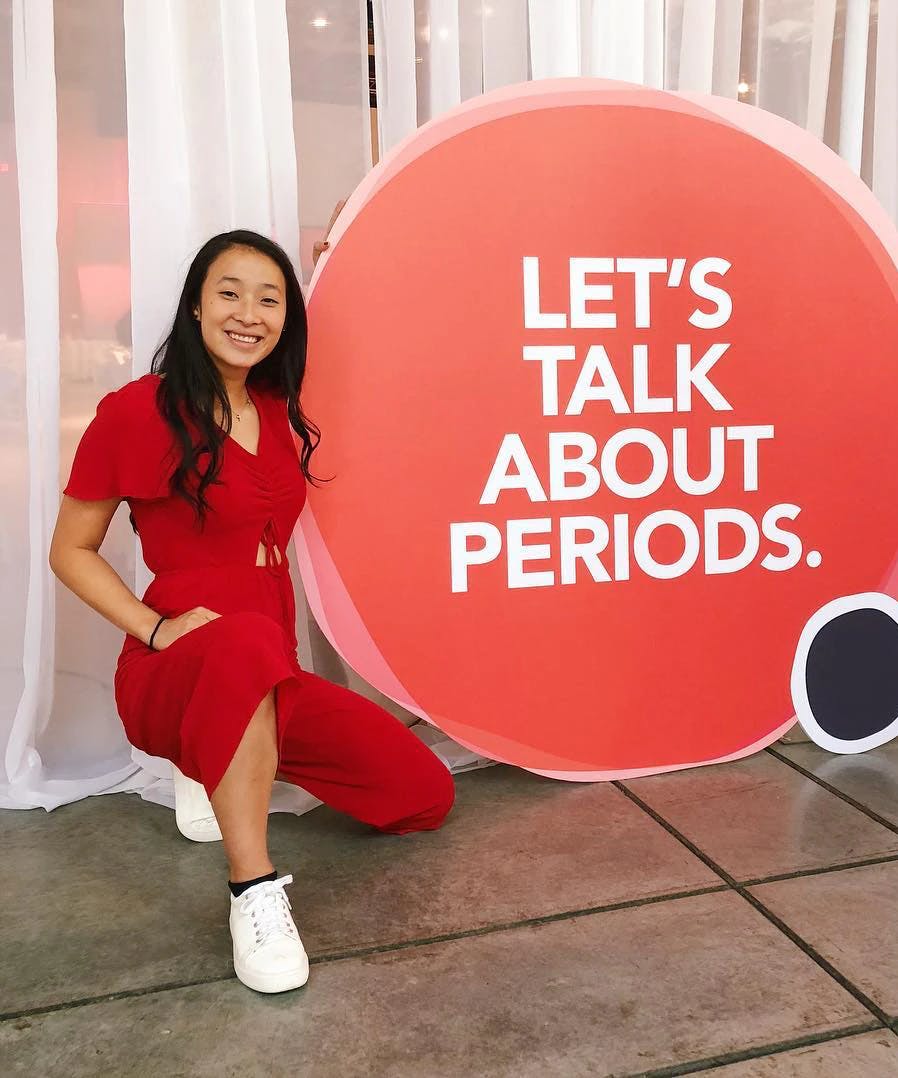This Young Activist Is Helping To Solve Period Poverty For Girls Around The World
Imagine not being able to go to school because you have your period and you don’t have access to pads or tampons.

Now imagine a man promising to give you a pad if you have sex with him - and you do it, just so you can attend school. Because of period poverty, this is the reality for some young women.
What Is Period Poverty?
Period poverty is a relatively new term used to describe the lack of access to affordable menstrual products, such as pads, tampons, and liners. Period poverty is observed on a global scale, from Africa and Australia, to Asia, Europe, and even parts of America.
Period poverty affects many women and girls and in many more ways than one. In India, for example, their education is on the line. 70% of girls in India often have to miss school when they’re menstruating since they don’t have access to menstrual care products. Even in America, 20% of teen girls have struggled to afford menstrual products or couldn’t afford to buy them at all. Four out of five teen girls in America have also either missed school or know someone who has because of a lack of access to menstrual products.
Young women in Saharan Africa engaged in sex work in exchange for pads and tampons just to be able to attend school.
Even more alarming is what other women and girls have had to resort to in order to afford menstrual products. A 2014 UNESCO report discovered that young women in Saharan Africa engaged in sex work in exchange for pads and tampons just to be able to attend school. No woman or girl should have to feel shame for menstruating and resort to prostitution in order to obtain menstrual products.
Teenager Founds PERIOD Organization To Fight Period Poverty
Fortunately, there are activists who are leading the way to stop period poverty. In 2014, 16-year-old Nadya Okamoto founded PERIOD, an organization to help end period poverty and promote menstrual equality on a global scale. At 18 years old, Nadya Okamoto gave a TED talk at the University of Oregon, which started a global menstrual movement. PERIOD has now grown to over 800 chapters that span 50 states and 40 countries.
PERIOD’s goal is to ensure that women and girls from all around the world have equal access to safe menstrual products. PERIOD believes that menstrual products shouldn’t be considered a luxury; they’re essential and should be equally accessible to women and girls all around the world.
Through sponsors from menstrual product companies, including big brand names like Always and Tampax, PERIOD is able to distribute menstrual products to women and girls in need via their 800+ chapters.
Menstrual products shouldn’t be considered a luxury; they’re essential and should be equally accessible to all women.
Last October, PERIOD was responsible for the first ever National Period Day to demand menstrual equality and to get rid of the tampon tax in all 50 states. Although 30 states currently still impose a tampon tax, PERIOD has made great strides in their efforts. If you would like to donate to their cause, you can join their Every 28 Days Club.
COVID-19’s Affect on Period Poverty
COVID-19 has affected all aspects of our lives and that includes period poverty. Periods don’t stop during a pandemic. Due to financial strain, reduced access to menstrual products and education, and a sharp increase in the price of menstrual products, more women are having a difficult time managing their period care.
Research done from Plan International, a development and humanitarian organization, shows that period poverty is increasing on a global level. Out of all of the health professionals that Plan International surveyed from 30 countries, 73% of them said that restricted access to menstrual products through shortages and supply chains is a major issue.
Period poverty is increasing on a global level.
Closing Thoughts
The lack of safe menstrual care access poses a threat to the health and safety of women and girls worldwide. Wonderful activists like Nadya Okamoto and health organizations like Plan International are doing their part to aid in the fight against period poverty, but the government and health agencies need to step up and become much more involved when it comes to the health and safety of their women.
I’m happy to report that Scotland’s parliament recently passed a bill that provides access to free menstrual products in all public restrooms and schools. In January of this year, England began giving free access to menstrual products in their schools and colleges as well. Although there have been many triumphs, many more need to occur. Especially during the COVID-19 pandemic, it’s imperative that all women and girls have access to menstrual health, management, and education. Period.